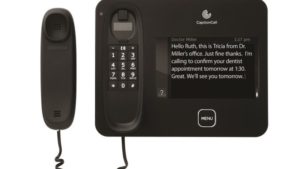Assistive Listening Devices (ALDs) Can Improve Your Hearing & Your Quality of Life
When many people think of adapting to life with hearing loss, the first thing that comes to mind is most likely wearing a hearing aid. And while these devices can certainly make a world of difference for the user, they shouldn’t be the only thing a person relies upon all day and night. Investing in assistive listening devices for the home can help fill in the gaps that a hearing aid alone cannot, making life much easier for the hearing impaired.
Creating Your Own Assistive Listening System at Home
When you’re experiencing hearing loss, sounds you may have previously thought to be too loud to miss can fade into the background and cause you to miss important information. That’s why it’s good to consider a variety of assistive listening devices for use around your home. In fact, thanks to advances in technology, assisted hearing is applicable in virtually every room you use.
Let’s take a look at two categories of hearing amplification devices:
Assisted Hearing Devices to be Placed Around the House
Some of the products you own that make noise may no longer be loud enough to be effective. Consider replacing them with the following assistive listening devices:
- Amplified alarm clocks – These clocks are not only considerably louder than the average alarm clock (emitting noise at roughly 110db versus 80db), they can also vibrate to further help you wake up with a physical sensation.
- Amplified telephones – In addition to having a ringer and speaker at least 35db louder than those of standard phones, the amplified versions can be equipped with an “emergency memory” setting so you can more easily call people in your time of need. Conversely, there are telephone amplifiers that can increase call clarity and reduce background noise on your typical home or office phone.
- Fire alarms – Like the aforementioned amplified alarm clocks, these fire alarms can alert you in several ways—with a 90db noise, flashing lights, and vibration.
- TV listening systems – Hearing your TV can be easier with over-ear headphones that can be worn while your hearing aid is in, and closed-caption boxes make understanding speech easier by decoding dialogue and displaying it on the screen.
Wired or Wireless Listening Devices for Personal Use
There are also personal assistive listening devices that are better suited for being moved from room to room:
FM Systems
These radio-based systems pick up sounds through a microphone and wirelessly transmit them to a receiver worn by the listener (which can be attached to a hearing aid or used on its own). They can be used effectively indoors or outdoors.
Induction Loops
Induction loops transmit sound with a microphone, an amplifier, and wiring. These pick up sounds in a circle around the listener, are great at cutting out background noise—especially in areas with poor acoustics—and can be used in many different indoor or outdoor settings.
Personal Sound Amplifiers
While personal sound amplifiers are not always as discreet as hearing aids and are not tailored for any specific form of hearing loss, they can be an effective listening tool on the go. Still, wearers are urged to be careful when using them, as they are capable of amplifying sounds to damaging levels.
Ready to Learn More?
The audiologists at Vibrant Hearing can help you find the best assistive listening devices to meet your needs! Schedule an appointment at our Missoula, MT, clinic to get started.

